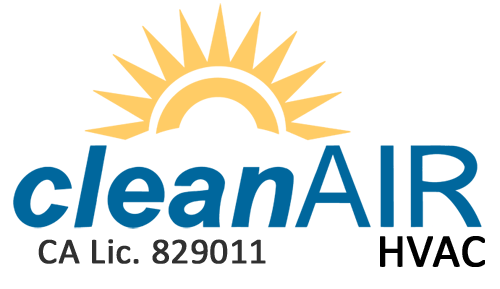
If you’re uncertain whether your Pacheco residence has unhealthy indoor air quality (IAQ), it likely does.
We are indoors a lot. In reality, we’re inside up to 90% of the time, according to the U.S. Environmental Protection Agency. And the air inside homes could be 2–5 times more polluted than outdoors, which could create long-term health problems.
Most Common Sources of Poor IAQ
We’ve compiled a list of the most common origins of bad IAQ, the issues they cause and how you can remedy these indoor air pollutants. If you’re troubled by the air inside your residence, we advise talking with a expert like Clean Air HVAC about which solutions are a good fit for your house.
Volatile Organic Compounds
Volatile organic compounds, or VOCs, are fumes released by common household things.
They’re found in paint and stains along with:
- Furniture
- Carpet
- Building materials
- Cleaning products
- Cosmetics
- Air fresheners
- Candles
When these fumes accumulate inside, they might irritate your eyes, nose and throat. They can also result in headaches and nausea. Regardless of whether your home is in a rural or industrial location, an EPA study found indoor levels of these chemicals can be 2–5 times worse than the air outdoors.
Always adhere to the manufacturer’s directions when applying paint or spraying cleaning products. Cracking a window can help odors dissipate faster.
Air purification systems can also make it better. This system partners with your heating and cooling system to enhance indoor air. When looking for one, ensure it’s specifically created to eliminate VOCs.
Dust and Pet Dander
Dust and pet dander can aggravate health problems like asthma and allergies, especially when it continuously gets redistributed by your residence’s comfort equipment. While you can vacuum more regularly and get an improved air filter, an air filtration system may be a better fit.
This unit hooks to your HVAC equipment to deliver mighty filtration. Some types have hospital-level filtration for getting rid of particles and bioaerosols.
Lingering Odors
New homes are tightly sealed to enhance energy efficiency. While this is great for your heating and cooling expenses, it’s not so good for your IAQ.
Stuffy odors can hang around for a greater amount of time since your home is pulling in a smaller amount of fresh air. Because keeping your windows open all the time isn’t a possibility, here are two methods you can make your indoor air smell fresher.
An air purification system is put in your ducts to wipe out odors before they get released again. Look for one with a carbon filter and the power to break down damaging VOCs. These units can also help keep your family healthy by getting rid of most bacteria and normal allergy triggers like pollen and mold spores.
A ventilation system removes stale indoor air and substitutes it with clean outdoor air. There are two kinds of units (heat recovery and energy recovery), so ask our professionals for more information on which kind is right for your residence.
Unsteady Humidity
It’s critical your residence’s humidity remains even. Air that’s too moist can create mold, while dry air can lead to respiratory symptoms.
Our specialists suggest 40–50% for ideal comfort. To keep yours steady, think over getting a whole-home humidifier or whole-home dehumidifier with your HVAC equipment.
Instead of having to pull a humidifier from room to room, this product delivers consistent humidity across your house.
Carbon Monoxide
Carbon monoxide is colorless gas you can’t smell. It’s caused by insufficient combustion in fuel-burning equipment, like gas heating systems, water heaters or fireplaces.
It produces a severe health risk. In low levels, it can cause flu-like ailments like headaches and nausea. It may be lethal in large concentrations.
We recommend regular furnace maintenance to double-check your equipment is working smoothly. This job allows our specialists to see issues before they get bigger, including malfunctions that can lead to carbon monoxide leaks.
The best method to keep your residence free of carbon monoxide is to get detectors. These alarms should be on each floor by bedrooms and living rooms.
Enhance Your Home’s Air Quality with the Clean Air HVAC Specialists
Informed that your home has poor air quality but not sure how to improve it? Or unsure which option is right for you? Give our friendly HVAC professionals a call at 925-233-6238 or contact us online right away. With free estimates and pro service, we’ll help you locate the ideal solution for your needs and budget.


